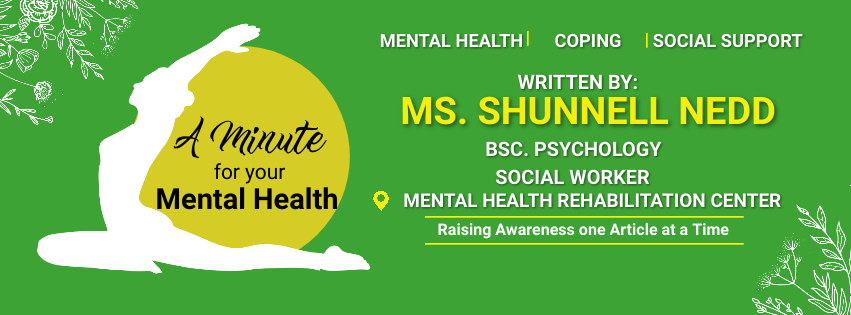“Together for Mental Health” is the theme for this year’s Mental Health Awareness Month.
During the month of May, there will be a series of interviews with patients admitted to the
Mental Health Rehabilitation Center to highlight the voices that many times go unheard. The
names used are not their own as we wish to protect their identities.
Susan who is 32 years of age is a long-stay patient at the Mental Health Rehabilitation Center,
meaning that she has been at the Center for an extended period of time, more than five years due
to social reasons. Susan was diligently using the outpatient services of the Mental Health
Rehabilitation Center after her last discharge. However, she returned to the institution after
recognizing on her own that she was unwell, and stated at that time that she had lost her job and
the place where she would have been living.
Susan highlighted on admission that she was previously a Mental Health out-patient and she
would follow up once a month to get her medication. However, she voiced that there were
stressors in her life that would have contributed to her decline as a Mental Health patient such as
losing her job (source of income), lack of family support and not having anywhere to live.
Susan's story is not limited to those with mental health conditions. Negative social factors such
as family disharmony, poor relationships and other stressful life events can cause a decline in
anyone's mental health.
Susan expressed that if she could share something with the public, she would let them know that
they should not give up on the mentally ill because although she is mentally ill, she still has
feelings. She voiced if the public can visit, they should do so (with protocols in mind) and give
donations where they can. In addition, she stated that persons and their pastors can extend a word
of prayer on their behalf. Susan expressed that if persons are able, it would be helpful if they can
volunteer their time teaching skills to patients as she would love to learn a craft.
Susan emphasized the importance of not lying about the Mentally Ill, as collateral information
that is gathered is used to help inform their treatment. When or if given the opportunity, she
asked that persons tell the truth to aid in the most effective treatment.
Other advice given was “Here will not be the last for the mentally ill”, “You can pray” and “You
can learn to do better”.
When asked about her thoughts and feelings about her illness and journey, she said “my
atmosphere is good” and “my illness has improved”.
By:
Ms. Shunnell Nedd
BSc. Psychology

